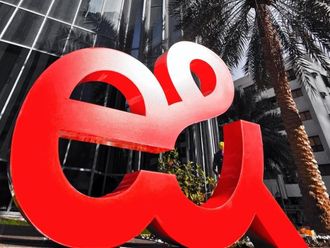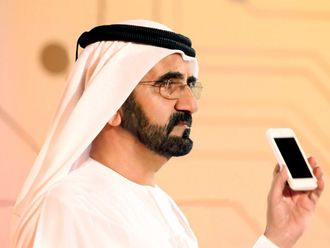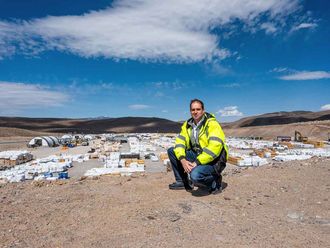Abu Dhabi: The national capital is positioning itself as a platform for addressing global warming and climate change issues, Dr. Sultan Al Jaber, chief executive of Masdar (Abu Dhabi Future Energy Company) said here on Sunday.
"The emirate of Abu Dhabi is progressing in the right direction in the field of renewable energy and is in the forefront of a global initiative that addresses issues of climate change due to global warming," Al Jaber told Gulf News by telephone.
Last year, Masdar broke ground on Masdar City, the world's first zero-carbon, zero-waste, car-free city. Al Jaber at the time announced a development budget of $22 billion for the project.
Masdar aims to maximise the benefits of sustainable technologies, such as photovoltaic cells and concentrated solar power.
It targets carbon reduction and management and development of other renewable energy sources such as wind and hydrogen power.
Masdar City will save the equivalent of more than $2 billion in oil over the next 25 years, based on today's energy prices. The city will also create more than 70,000 jobs and will add more than two per cent to Abu Dhabi's annual gross domestic product (GDP).
Renewable energy sources will account for at least seven per cent of Abu Dhabi's power generation capacity by 2020. Masdar estimates this commitment will create a renewable energy market of $6 billion-$8 billion in the emirate.
Sustainable solutions
Masdar's mission is to be at the forefront of the research, development and deployment of solutions that will enable governments around the world, including Abu Dhabi's own, to meet the targets they are setting for the adoption of renewable energy.
Of the UAE's electricity generation capacity of about 18,000 megawatts (MW), almost 85 per cent of the power generated is gas-based, while the other plants are oil-fired. Nearly all of Abu Dhabi's and Dubai's electricity comes from gas-based stations.
Analysis shows that national annual peak demand for electricity is likely to be 40,858 MW by 2020, up 162.82 per cent from the present, based on an annual growth rate of nine per cent from 2007.












